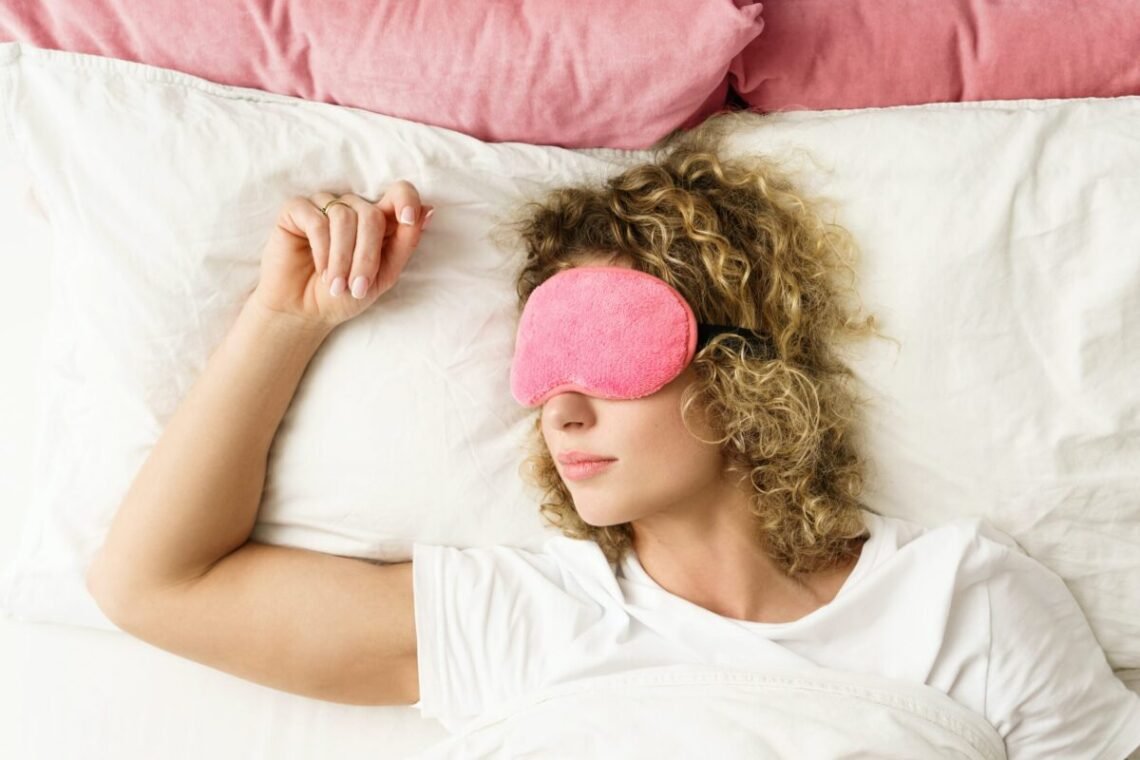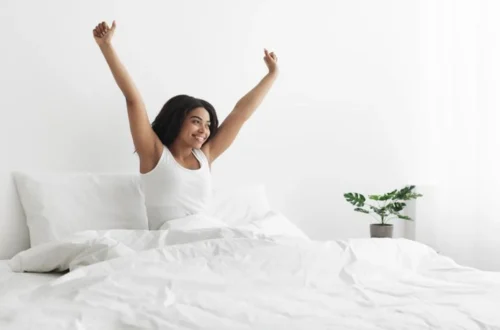Why Sleep Matters in a Paleo Lifestyle
Adopting a Paleo lifestyle means embracing ancestral habits—eating whole foods, moving naturally, and prioritizing rest. Quality sleep is a cornerstone of this approach, supporting everything from energy levels to mental clarity. When I first tried Paleo, I focused on diet but overlooked sleep, only to realize it’s the glue that holds the lifestyle together. This article dives into why sleep is vital for Paleo enthusiasts and how to optimize it for vibrant health.
Understanding the Paleo Lifestyle
What Is the Paleo Diet?
The Paleo diet mimics what our hunter-gatherer ancestors ate, emphasizing whole foods like meat, vegetables, nuts, and fruits while avoiding processed foods, grains, and dairy. It aims to align our bodies with their evolutionary design. Sleep, often undervalued, was a natural priority for our ancestors, who rested with the sun’s rhythm.
The Role of Sleep in Ancestral Living
Our ancestors didn’t have artificial lights or late-night Netflix binges. They slept in sync with natural light cycles, likely getting 7–9 hours nightly. Replicating this in a Paleo lifestyle can enhance recovery, mood, and overall health, as I discovered after ditching my phone before bed.
The Science of Sleep and Health
Why Quality Sleep Is Essential
Sleep regulates hormones, supports immunity, and aids muscle repair—key for anyone following Paleo’s active lifestyle. Poor sleep can disrupt insulin sensitivity and increase inflammation, counteracting Paleo’s benefits. I learned this the hard way when late nights left me sluggish despite clean eating.
How Sleep Impacts Paleo Goals
Paleo aims to optimize energy, weight, and mental focus. Quality sleep boosts growth hormone for muscle recovery, stabilizes cortisol to prevent fat storage, and sharpens cognition. After prioritizing sleep, my workouts improved, and my cravings for non-Paleo snacks vanished.
Sleep and Hormonal Balance
Sleep regulates ghrelin and leptin, hormones controlling hunger. Poor sleep increases ghrelin (hunger) and decreases leptin (satiety), leading to overeating. When I started sleeping better, my urge to snack on non-Paleo treats like cookies dropped significantly.
How Poor Sleep Undermines Paleo Benefits
Increased Cravings for Non-Paleo Foods
Sleep deprivation can make sugary, processed foods tempting, derailing your Paleo commitment. Studies show that sleep loss reduces willpower, making it harder to stick to whole foods. I once caved to a donut after a sleepless night, proving this point.
Reduced Exercise Performance
Paleo encourages natural movement like strength training or hiking, but poor sleep impairs strength, endurance, and recovery. Research indicates that even one night of bad sleep can reduce athletic performance by 10–20%. My morning runs felt impossible without solid rest.
Mental Fog and Mood Swings
Sleep loss clouds focus and increases irritability, clashing with Paleo’s goal of mental clarity. Chronic sleep deprivation is linked to higher stress and anxiety levels. I noticed sharper decision-making and calmer moods after consistent sleep.
Key Strategies for Better Sleep on Paleo
Align with Natural Light Cycles
Exposure to morning sunlight and limiting blue light at night helps regulate your circadian rhythm, a core Paleo principle. Aim for 15–30 minutes of sunlight daily and use blue-light-blocking glasses after sunset. This simple shift transformed my sleep quality.
Create a Sleep-Friendly Environment
Keep your bedroom dark, cool (60–67°F), and quiet to mimic ancestral sleeping conditions. A blackout curtain and white noise machine worked wonders for me, turning my bedroom into a sleep sanctuary.
Avoid Stimulants and Heavy Meals
Caffeine and large meals close to bedtime can disrupt sleep. Paleo-friendly foods like bone broth or a light veggie snack are better evening choices. I learned to skip coffee after 2 PM to avoid restless nights.
Establish a Consistent Routine
Going to bed and waking up at the same time daily syncs your body’s internal clock. Our ancestors followed consistent sleep patterns, and mimicking this helps. My 10 PM bedtime routine became a game-changer for energy.
Stress Management Techniques
Paleo emphasizes holistic health, including stress reduction. Practices like meditation, deep breathing, or yoga before bed can calm the mind. A 5-minute meditation app session helped me unwind after hectic days.
Sleep-Boosting Paleo Foods and Nutrients
Magnesium-Rich Foods
Magnesium, found in Paleo-friendly foods like spinach, almonds, and avocados, promotes relaxation and better sleep. Aim for 300–400 mg daily through diet or supplements. Adding magnesium-rich foods to my dinners improved my sleep depth.
Tryptophan for Serotonin Production
Tryptophan, in turkey, eggs, and fish, supports serotonin and melatonin production, aiding sleep. A small turkey or salmon meal in the evening can help. I noticed calmer evenings after incorporating these foods.
Avoiding Sleep-Disrupting Foods
Processed sugars and grains, already off-limits in Paleo, can spike blood sugar and disrupt sleep. Sticking to low-glycemic Paleo foods like berries or sweet potatoes keeps blood sugar stable. This tweak reduced my nighttime wake-ups.
Paleo Sleep Food Table
| Food | Nutrient | Sleep Benefit | Paleo Source |
|---|---|---|---|
| Spinach | Magnesium | Promotes relaxation | Salads, smoothies |
| Turkey | Tryptophan | Boosts melatonin production | Dinner protein |
| Almonds | Magnesium, protein | Stabilizes blood sugar | Snacks, toppings |
| Sweet Potatoes | Complex carbs | Sustained energy, no sugar spikes | Side dish |
Comparing Sleep in Paleo vs. Modern Lifestyles
| Aspect | Paleo Lifestyle | Modern Lifestyle |
|---|---|---|
| Sleep Schedule | Aligned with sunrise/sunset | Often irregular, late-night screen time |
| Environment | Dark, quiet, natural | Artificial light, noise pollution |
| Diet Impact | Whole foods, sleep-friendly | Processed foods, stimulants |
| Stress Management | Natural movement, mindfulness | High stress, minimal relaxation |
Paleo’s sleep approach mirrors ancestral habits, prioritizing natural rhythms and whole foods, while modern lifestyles often disrupt sleep with screens and stress.
Pros and Cons of Prioritizing Sleep in Paleo
Pros
- Enhances energy for Paleo’s active lifestyle.
- Reduces cravings, supporting dietary adherence.
- Improves mental clarity and mood stability.
Cons
- Requires discipline to avoid screens and stimulants.
- May need investment in sleep tools (e.g., blackout curtains).
- Adjusting to early bedtimes can feel restrictive initially.
People Also Ask (PAA)
Why is sleep important in a Paleo lifestyle?
Sleep supports hormone balance, recovery, and mental clarity, amplifying Paleo’s benefits like weight management and energy. It aligns with ancestral habits of resting with natural light cycles.
What foods in the Paleo diet help with sleep?
Magnesium-rich foods (spinach, almonds) and tryptophan sources (turkey, fish) promote relaxation and melatonin production. Avoid heavy or sugary foods before bed.
How can I improve sleep on a Paleo diet?
Align with natural light, create a sleep-friendly bedroom, avoid caffeine late, and eat light, nutrient-dense meals. Consistent routines also help.
Where can I learn more about Paleo and sleep?
Check resources like The Paleo Diet (thepaleodiet.com), Sleep Foundation (sleepfoundation.org), or Paleo Leap (paleoleap.com) for tips and science-backed advice.
Best Tools and Resources for Better Sleep
Sleep Tracking Tools
- Oura Ring: Tracks sleep stages and quality ($299, ouraring.com).
- Fitbit Charge 5: Monitors sleep and activity ($150, fitbit.com).
- Sleep Cycle App: Free app for sleep analysis (sleepcycle.com).
Paleo Sleep Resources
- The Paleo Diet Website: Guides on ancestral living (thepaleodiet.com).
- Sleep Foundation: Evidence-based sleep tips (sleepfoundation.org).
- Mark’s Daily Apple: Paleo lifestyle blog with sleep advice (marksdailyapple.com).
Where to Buy Sleep Aids
- Amazon: Blackout curtains, white noise machines (amazon.com).
- Target: Affordable bedding for cool sleep environments (target.com).
- Blue Light Blocking Glasses: Budget options at bluelightglasses.com.
FAQ Section
How many hours of sleep do I need on a Paleo diet?
Aim for 7–9 hours nightly, as recommended by the Sleep Foundation, to support Paleo’s goals of recovery and hormonal balance.
Can Paleo foods cause sleep issues?
Heavy or spicy Paleo meals close to bedtime can disrupt sleep. Opt for light, nutrient-dense options like salmon or veggies in the evening.
How does stress affect sleep in a Paleo lifestyle?
Chronic stress raises cortisol, disrupting sleep and counteracting Paleo benefits. Meditation or yoga can help manage stress for better rest.
What’s the best bedtime routine for Paleo?
Wind down with no screens, a light Paleo snack, and relaxation techniques like deep breathing. Aim for a consistent bedtime around 10 PM.
Where can I find Paleo-friendly sleep supplements?
Magnesium supplements or herbal teas (chamomile, valerian) are available at health stores like iHerb (iherb.com) or Vitacost (vitacost.com).
Conclusion: Sleep as the Foundation of Paleo Success
Quality sleep is the unsung hero of a Paleo lifestyle, amplifying the benefits of clean eating and active living. By aligning with ancestral sleep habits—natural light, a calm environment, and sleep-friendly foods—you can unlock better energy, focus, and health. My own journey from restless nights to restorative sleep proved that small changes, like ditching late coffee and embracing a dark bedroom, make a big difference. Start prioritizing sleep tonight, and watch your Paleo lifestyle soar to new heights.





